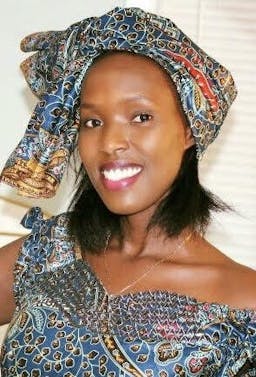Digital Action Campaign Narrative
Feb 25, 2020
First story
Bringing Milling Machines to Congo's most Remote Communities
I spent parts of my childhood in Minembwe, a small and remote village in High Plateaus of Eastern Congo. It takes about three days of walking to get to the nearest dirt road in Uvira - a small city perched on the shore of Lake Tanganyika I call my hometown. One of my vivid memories as a teenager while in these remote parts of Congo is seeing women and girls pound maize with bare hands to produce corn flour for Ugali, a staple food there. I pounded maize too. It’s a “women’s work”.
Women in these remote areas drive the economy and do virtually all the household chores, while men take care of cattle. Women do much of the work of cultivating the land to feed their families. They gather firewood, a task increasingly difficult as weather patterns change. They haul jerry cans of water on their heads from streams nearby. They take care of the children, cleanhouses, and cows shelters.
I co-foundedJimbereFund precisely to help women in Congo’s most remote communities. Women like my grandmother and aunties who still live in Minembwe. I want to enable them and others like them to create a better life for themselves and their families. Our approach blends community organizing and development interventions. Communities identify their most pressing needs and we work with them to find solutions and co-implement them.
So my first project consisted of surveying women’s groups in four villages in Minembwe andTulamboareas to hear their top concerns. Overwhelmingly, women told us that the support they needed most was a milling machine. To produce corn floor, a woman spends about 20 hours per week grinding and pounding maize with bare hands on traditional wooden tools, watering it, filtering it and drying it up, while a milling machine would take half an hour or less to do the task. One process takes about two weeks to complete so women are always working on this task, with a day-long pounding as the culmination of it and the most difficult part of it. It’s a physically strenuous activity and time-consuming. This activity affects women in many ways.
First, this project will allow girls to spend more time in school. One of thecasualtiesof “guhura”, as the task of pounding maize is known locally, is that girls from the age of about 10 are supposed to do this task. So for days of pounding maize, young girls skip school to take part in the activity. And by the time they are 14, they have dropped outof school altogether to take care of the household chores and be married off. In rural Congo, it’s estimated that 74% of girls between the ages of 15 and 19 are already married, usually arranged by their families without their consent.
Second, with so much time consumed in this task, women don’t have enough time left to focus on other important things. So fields may go unattended. Children not taken care of as they should. Freeing women from this task with a provision of a $3,000 milling machine will mean more food and time for their families and children. One milling machine can serve about 12 villages and hundreds of households in close proximity.
Third, this project aims at reducing gender inequities in high plateaus where women’s rights are in a diresituation and their labor is not appreciated. It will increase the productivity of women’s labor and support women’s groups take center stage in community development, which further improves their status.
Our overall goal is to acquire 32 high-quality milling machines and distribute them to 32 women’s groups in each of the 32 “groupements” in high plateaus of Itombwe. We’ve started this process by initially focusing on 3 “groupements”, two in Minembwe and one in Tulambo.
The Project Outcome
Not only that the outcome of this project is simply making pounding maize with bare hands by women a thing of the past in the High Plateaus of Itombwe but it will realize the following outcomes:
- Keep girls between 10 to 14 years of age in school. This is the high-risk age group likely to drop out of school due to this activity and then be married off without their consent.
- Allow at least three women in each “Groupement” to focus on women’s rights in their community such as the right to inheritance and the right to own property, which they’re still denied.
How to Get Involved
- Support one of the projects above by donating online at www.jimberefund.org
- Host a fundraiser in your house or community or school, and invite us to speak to your audiences
- Join our newsletter on our website
https://www.youtube.com/watch?v=fPGZ4ONnUDA




